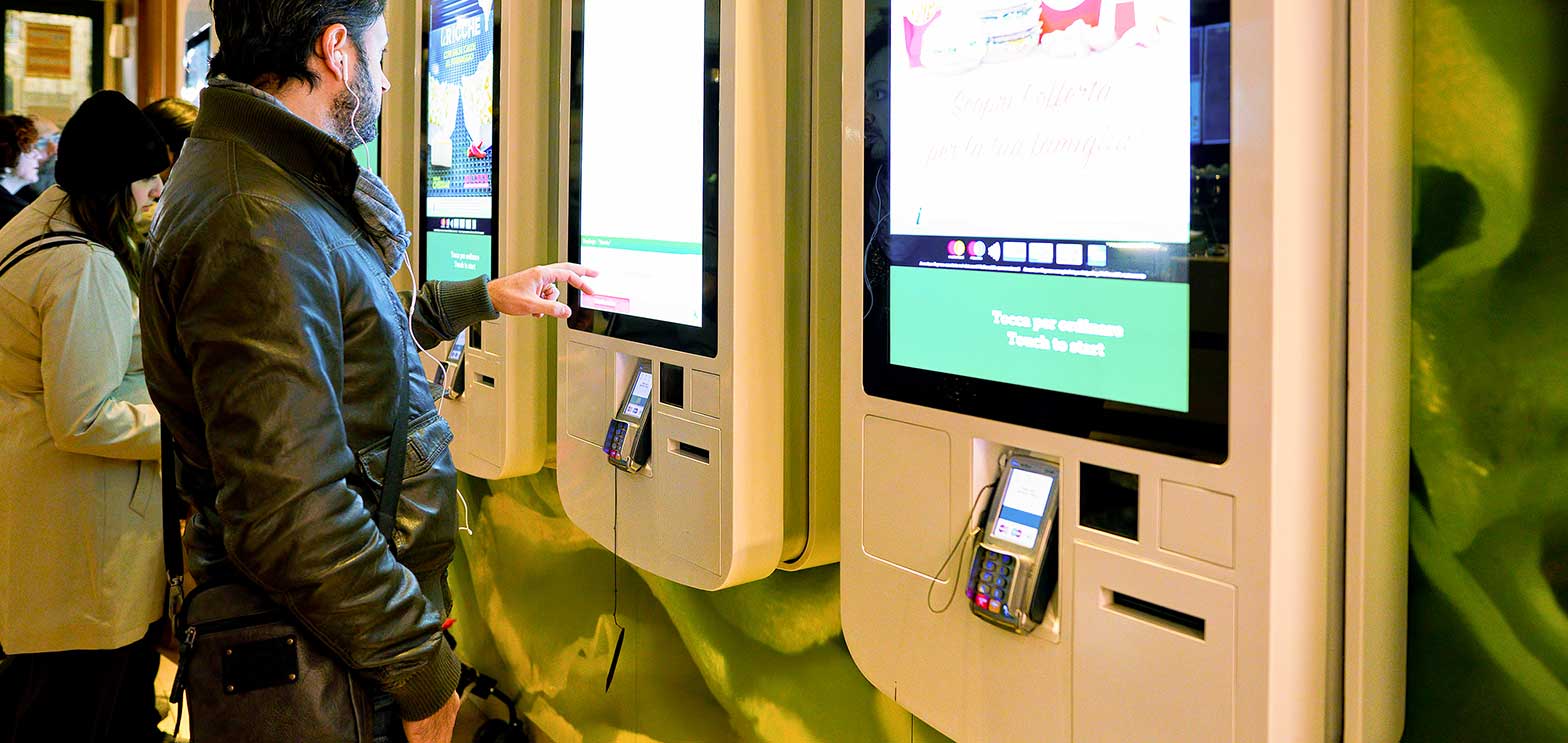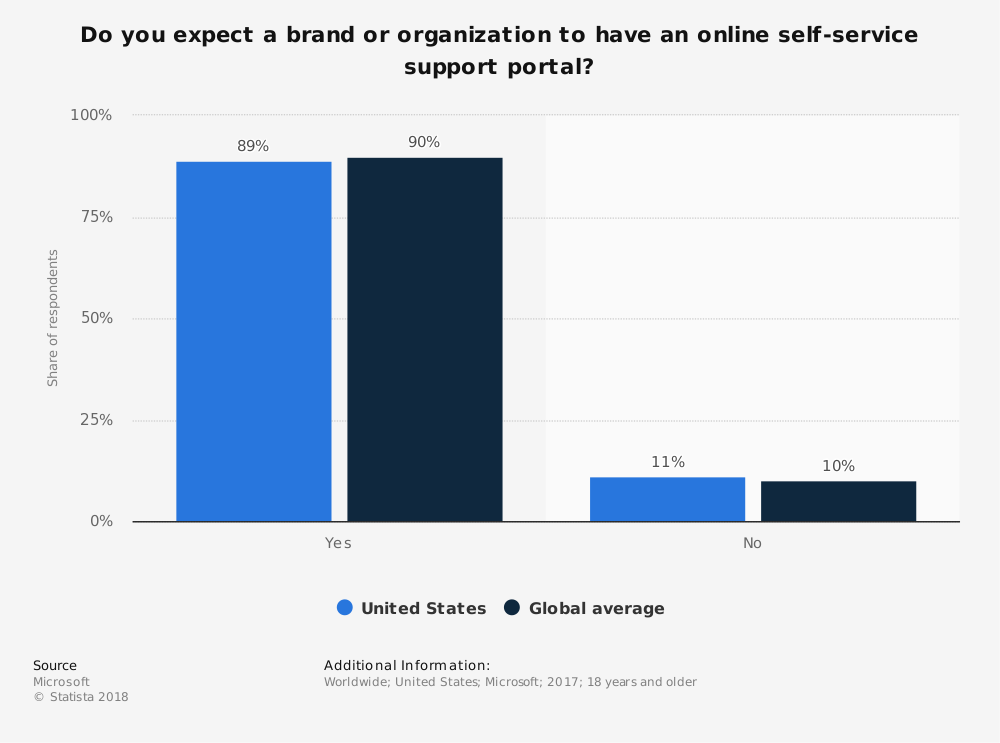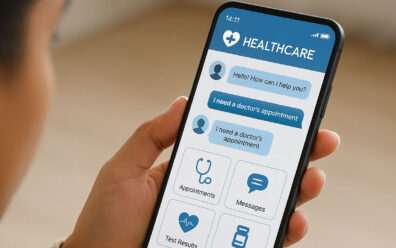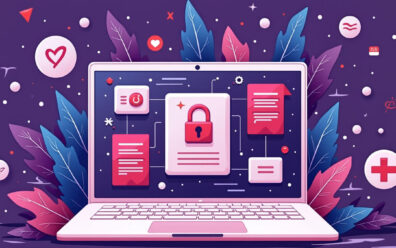Contact-Center Outsourcing5.5 minute read
Why Customer Self-service Is Essential to a Successful CX Strategy
Delivering a superior customer experience (CX) in an era when customers are savvier than ever, and the number of communications channels increasing seemingly overnight, is no easy task. And compounding this challenge is the fact that, today more than ever before, customers are demanding fast and satisfying access to information and responses to inquiries.

“Today more than ever before, customers are demanding fast and satisfying access to information and responses to inquiries.” Share on X
“Service is an increasingly important competitive advantage for companies, both large and small, that make doing business easy and put their customers’ needs first,” as Raymond Joabar of American Express stated in a Customer Service Barometer news release. “Seven in 10 U.S. consumers say they’ve spent more money to do business with a company that delivers great service.”
Seven in 10 U.S. consumers say they’ve spent more money to do business with a company that delivers great service
That’s data that shouldn’t be taken lightly. Customers clearly value a superior experience, and winning them over means meeting them in each channel where they might want to engage with your brand. And that means offering a satisfying customer self-service experience.
Why Customer Self-Service Is More Important than Ever
Customer self-service—or self-care, as it’s also called—involves leveraging CX automation tools to let people engage with your business without the need to deal with a live agent. This could be via a mobile app, an automated voice response system or chat function, or even static information that’s available on your website online (Indeed, Forrester has noted that online FAQs are among the most frequently used self-care services).
This isn’t to diminish the importance of using a team of knowledgeable and friendly live agents. On the contrary, the AmEx Customer Service Barometer cited above points out that 68% of customers cited a “pleasant representative” as the major factor in what they deemed a positive customer experience. And almost as many (62%) said they particularly valued an agent’s knowledge and resourcefulness.
“Knowledgeable and resourceful agents make a positive customer experience.” Share on X
Yet, as essential as they are in the big picture, live agents aren’t needed for every transaction. For relatively simple interactions, customers prefer not to undergo the sometimes-lengthy process of contacting and then explaining their situations to a customer service rep. To this end, a whopping 89% of U.S. customers expect a brand to offer a self-care portal, according to customer service data from Statista.
Convenience is the driving force here: When it works as it should, customer self-service is seen as an enormous advantage to people who want their issues resolved quickly and efficiently without the need to contact a live agent—an option that’s only needed “as the complexity of the issue increases, such as with payment disputes or complaints,” as the AmEx news release points out.
It should be noted that this trend does vary a bit given the demographics of the market involved. For instance, 64% of those within the Baby Boomer generation still prefer interacting with customer care via traditional voice channels, versus just 12% of millennials, according to customer care data from the Directors’ Club.
Yet, it may come as a bit more of a surprise (give the relatively higher level of sophistication and price points) to learn that this preference for customer self-service seems to hold just as true for business-to-business transactions as it does for those focused on consumers: A McKinsey survey of 1,000 B2B executives found that “lack of speed in interactions with their suppliers” was the top pain point, with 86% of respondents preferring self-care tools when tackling basic tasks like reordering.
Balancing Self-service with Skilled and Knowledgeable Live Agents
In many ways, this preference for self-care can be advantageous to businesses willing to invest in services that give customers the power to accomplish simple transactions without the involvement of a live agent. Automating tasks that are simple and repetitive makes sense as a general boost to operational efficiency, as well as a means to better manage the workload of the live agents you do employ.
All the same, it can be tricky to balance customer self-service options with the availability of live agents. How can businesses truly ensure customer satisfaction in a transaction that’s fully automated? And what if the needs of a consumer go beyond the capabilities of automated care and require the intervention of a live agent? As useful as chatbots and automated responses are in many situations, in many others, they simply don’t have the power to get the job done.
As we’ve pointed out here in the past, it isn’t uncommon for customers dealing with automated systems to want to escalate their inquiries to a live agent. And when that happens, chances are they’re going to want that escalation to happen as quickly and as smoothly as possible. Giving them the option to speak with a live agent needs to be built into every stage of customer self-service.
Ultimately, then, the most successful CX models are those that combine customer self-service with access to live agents. Indeed, any forward-thinking customer care plan that’s designed for success in today’s rapidly evolving marketplace can and should have this balance built in.
If that sounds like an imposing task for a small- to mid-size business to handle all on its own, well—it is. And it should be. There are many good reasons why some of the largest and best-known companies rely on outsourced customer care to help them achieve these ambitious but essential goals. The cost of doing (which is typically less than what you might expect) is more than offset by the customer satisfaction and loyalty that it delivers.
But remember, when it comes time to choose a dedicated customer service partner, businesses should accept nothing less than the following features:
- The technological expertise to apply the data and analytical measuring tools needed to seamlessly shift between automated care and knowledgeable live agents.
- The ability to scale up and down when needed, in times of fluctuating customer demand or seasonal shifts in volume.
- The expertise to offer superior customer care across multiple channels within a wider, omnichannel strategy.
Ready to Take Your Customer Service Efforts to the Next Level?
If your customer care partner checks all the marks above, you’ll go a long way toward ensuring that not only are your operational needs being met now and well into the future, but— more importantly —the needs of your customers are being met, too.
Partner with a leading customer care outsourcer to walk you through the next steps.
Talk to an Expert →
This Might Interest You...
This website uses cookies to personalize and improve your experience. Continue browsing our site if you agree to our Cookie Policy or feel free to Manage Cookies yourself.






